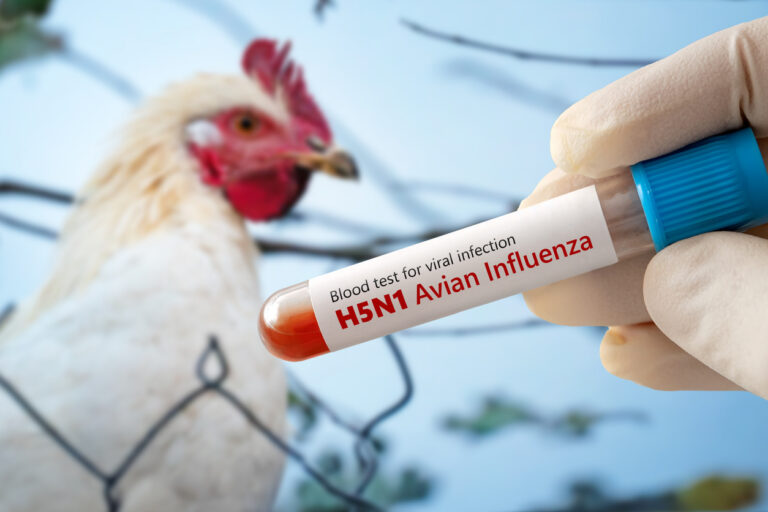WASHINGTON — The United States Department of Transportation (USDOT) and Federal Motor Carrier Safety Administration (FMCSA) are issuing an emergency waiver due to egg shortages that have resulted due to bird flu.
“This declaration is in response to the spread of highly pathogenic avian influenza (HPAI) resulting in the widespread loss of chicken flocks in affected areas impacting populations and the national food supply including the supply of eggs, and its effects on people and property, including immediate threats to human life, public safety and public welfare,” the declaration said. “This Declaration addresses the emergency conditions creating a need for immediate interstate transportation of live chickens from highly impacted areas.”
States Request Emergency Declaration
Between December 18, 2024 and January 2, 2025, the Governors of the States of California, Iowa, and Louisiana issued emergency declarations related to HPAI; each of these declarations resulted in up to 14 days of emergency relief. Because emergency conditions related to HPAI have not abated and have arisen in other states, FMCSA is issuing this Declaration and expanding and granting regulatory relief.
The declaration provides regulatory relief for commercial motor vehicle operations providing direct assistance supporting emergency relief efforts involving transportation of live chickens from areas impacted by HPAI to unaffected areas. Direct assistance does not include routine commercial deliveries, including mixed loads with a nominal quantity of qualifying emergency relief added to obtain the benefits of this emergency declaration.
Emergency Declaration Restrictions & Conditions
By execution of this Declaration, motor carriers and drivers providing direct assistance to the emergency transporting live chickens from areas impacted by HPAI to unaffected areas are granted emergency relief from regulations subject to the following restrictions and conditions:
- Before dispatch the motor carrier must have a valid agreement from the receiving facility to accept delivery of the live chickens.
- A driver must not driver more than 16 hours in any 24-hour period.
- The driver must stop all driving at 12:00 a.m. (midnight) each day.
- The driver must take a minimum of a 6-hour break in a sleeper berth before resuming any driving.
- Drivers must use paper records of duty status (RODS) and supporting documents, maintain RODS and supporting documents for 6 months from the date the record is prepared, and make RODS and supporting documents accessible to FMCSA and law enforcement upon request.
- Drivers must maintain a valid commercial driver’s license and not be subject to an out-of-service order or loss of driving privileges.
- Motor carriers or drivers currently subject to an out-of-service order are not eligible for the relief granted by this waiver until they have met the applicable conditions for its rescission and the order has been rescinded in writing by the issuing jurisdiction.
- Motor carriers and drivers must comply with all applicable Federal and State requirements such as U.S. Department of Agriculture and State Departments of Agriculture requirements for transporting live chickens, and obtain any necessary authority to load, transport, and deliver the live chickens, and carrying all required documentation.
- Motor carriers and drivers must, before transport begins, ensure that they have any and all approvals necessary for the loading, transport, and delivery of the live chickens; Motor carriers and drivers covered by this waiver must comply with all other applicable provisions of the FMCSA and Hazardous Materials Regulations. Nothing in this waiver shall be construed as a waiver of or exemption from any applicable requirements or any portion of the FMCSRs including the controlled substance and alcohol uses and testing requirements, the commercial driver’s license requirements or the financial responsibility (insurance) requirements, Federal Hazardous Materials Safety Regulations (HMRs); vehicle size, and weight limitations, as well as route designations administered by the FHA, any requirement of the U.S. Department of Agriculture, or any other regulations for which relief is not specifically granted herein.
- Accident Notification. Each motor carrier must notify FMCSA within 5 business days of an accident (as defined in 49 CFR 390.5), involving any CLP holder operating under the terms of this waiver. See 49 CFR 390.15(b) (requiring maintenance of accident registry.) Notification shall be by email to [email protected]. The notification must include the following information:
- Date of the accident.
- City or town, and State in which the accident occurred, or closest to the accident scene.
- Driver’s name and license number.
- Vehicle number and State license number.
- Number of individuals suffering physical injury.
- Number of fatalities.
- The police-reported cause of the accident (if available at time of the report) and whether the driver was cited for violation of any traffic laws, or motor carrier safety regulation.
Additional Information
This Emergency Declaration provides for regulatory relief from 49 CFR § 395.3 for commercial motor vehicle operations while providing direct assistance supporting emergency relief efforts. Direct assistance terminates when a driver or commercial motor vehicle is used in interstate commerce to transport cargo or provide services that are not in support of emergency relief efforts related to the emergency as set forth in this Emergency Declaration, or when the motor carrier dispatches a driver or commercial motor vehicle to another location to begin operations in commerce.
Upon termination of direct assistance to emergency relief efforts related to the emergency as set forth in this Emergency Declaration, the motor carrier and driver are subject to the requirements of 49 CFR § 395.3 while operating commercial motor vehicles, except that a driver may return empty to the motor carrier’s terminal or the driver’s normal work reporting location without complying with 49 CFR § 395.3, except as noted herein. When a driver is moving from emergency relief efforts to normal operations, a 10-hour break is required when the total time a driver is engaged in emergency relief efforts, or in a combination of emergency relief and normal operations, equals or exceeds 14 hours.
Declaration Effective Immediately
In accordance with 49 CFR §§ 390.23 and 390.25, this Declaration is effective immediately and shall remain in effect until the end of the emergency (as defined in 49 CFR § 390.5T) or until 11:59 P.M. (EST), March 10, whichever is earlier. FMCSA intends to continually review the status of this Declaration and the relief granted herein. As necessary, FMCSA may take action to modify this Declaration, including modification of the transportations and commodities covered by the Declaration, and extend, or terminate the Declaration if conditions warrant.













“Chicken lights” also required. Ha ha!